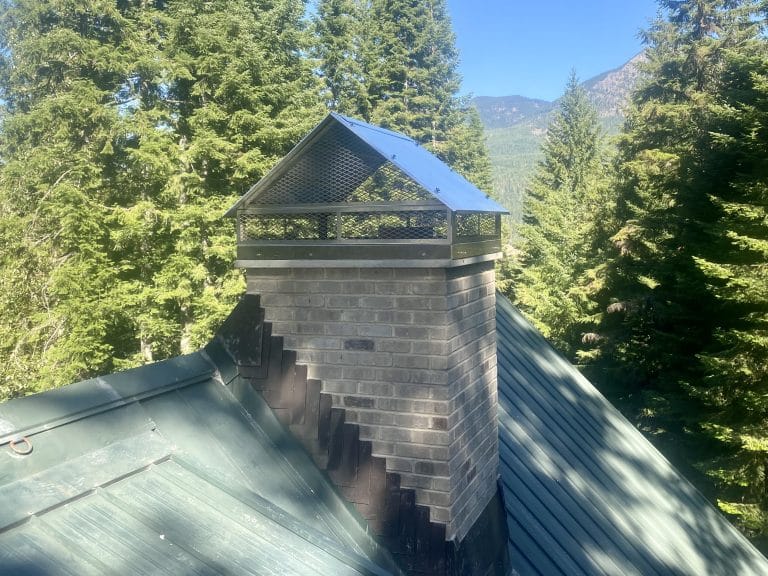As winter approaches, it’s essential to ensure that our homes are ready to withstand the harsh weather conditions. While we often focus on insulating our walls and roofs, one vital area that deserves equal attention is the chimney. Waterproofing chimneys is a vital aspect of winter home maintenance that should not be overlooked. By taking proactive measures to protect your chimney from water intrusion, you can preserve the warmth and comfort of your home, prevent structural damage, avoid mold and mildew growth, and extend the lifespan of this essential feature.
Stay warm, stay safe, and protect your chimney!

When water seeps into the masonry, it can cause various issues, including cracks, crumbling mortar, and deterioration of bricks. Over time, this deterioration can weaken the chimney structure, compromising its stability and safety. By waterproofing your chimney, you create a barrier that prevents water penetration, shielding the masonry from the damaging effects of moisture.
When water enters the porous masonry of your chimney and freezes due to low temperatures, it expands, exerting pressure on the bricks and mortar. This continuous expansion and contraction can lead to cracks, spalling, and disintegration of the masonry. By waterproofing your chimney, you prevent water from entering the masonry, thereby minimizing the potential for freeze-thaw damage.
Efflorescence refers to the white, powdery residue that forms on the surface of masonry when water evaporates, leaving behind mineral deposits. While efflorescence is primarily a cosmetic issue, it is an indication of water infiltration and can be a precursor to more severe damage. Waterproofing your chimney prevents water from entering the masonry, thereby reducing the occurrence of efflorescence. By eliminating this unsightly residue, you not only preserve the aesthetic appeal of your chimney but also mitigate potential water-related problems in the long run
Water intrusion through an unsealed chimney can cause damage beyond the exterior masonry. It can seep into the interior components, such as the flue liner or metal components, leading to rust, corrosion, or deterioration. Waterproofing your chimney acts as a safeguard, preventing water from entering the entire chimney system and protecting internal components from water-related damage. This proactive measure helps maintain the efficiency and functionality of your chimney, prolonging its lifespan.